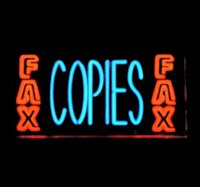Fair Use

"Fair Use Under Fire" by Diana Day clearly describes some of the issues surrounding the concept of "fair use": "the fair use statute, the part of the copyright law that delineates fair use, is not very precise",
including the fact that what actually constitutes "fair use" is poorly defined, non-specified, and open to interpretation.
Day observes that "there are a lot of different viewpoints about copyright and fair use" (ibid.). However, "the copyright law lists the rights that are within the copyright bundle: publishing, reproduction, distribution, performance, making derivative works" (ibid.), but does not include restrictions on sharing and/or exchanging information via alternate formats like weblinks and attachments.
The interview with Day includes a discussion of the DMCA and its ramifications for information providers. "And another thing we determined [has to do] with this Digital Millennium Copyright Act, the provision [Section 512] that allows for these take-down letters. Basically, it's called a safe harbor provision, and it says to Internet Service Providers [that they] will not be liable as a contributory infringer if [they] respond to one of these take-down letters expeditiously by removing the material that is assertedly a copyright infringement. So, the law doesn't force [ISPs to do this], but it holds a very powerful club over their head" (ibid.). Based on Day's conclusions about what constitutes infingement, it seems safe to assume that information providers-- including libraries-- cannot be held liable for how information resources are used.



0 Comments:
Post a Comment
<< Home